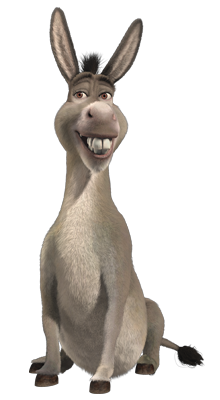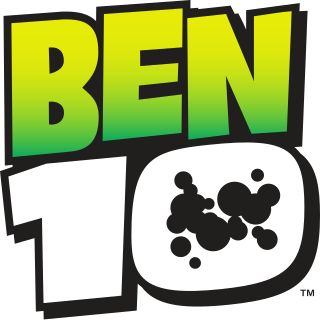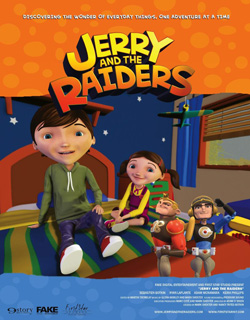
Moon Mullins is an American comic strip which had a run as both a daily and Sunday feature from June 19, 1923, to June 2, 1991. Syndicated by the Chicago Tribune/New York News Syndicate, the strip depicts the lives of diverse lowbrow characters who reside at the Schmaltz boarding house. The central character, Moon, is a would-be prizefighter—perpetually strapped for cash but with a roguish appetite for vice and high living. Moon took a room in the boarding house at 1323 Wump Street in 1924 and never left, staying on for 67 years. The strip was created by cartoonist Frank Willard.

Robert Lawrence Stine, known by his pen name R.L. Stine, is an American novelist. He is the writer of Goosebumps, a horror fiction novel series which has sold over 400 million copies globally in 35 languages, becoming the second-best-selling book series in history. The series spawned a media franchise including two television series, a video game series, a comic series, and two feature films. Stine has been referred to as the "Stephen King of children's literature".

Rankin/Bass Animated Entertainment was an American production company located in New York City, and known for its seasonal television specials, usually done in stop motion animation. Rankin/Bass's stop-motion productions are recognizable by their visual style of doll-like characters with spheroid body parts and ubiquitous powdery snow using an animation technique called Animagic.
The Adventures of the Bailey School Kids is a supernatural children's book series. The books in the series are co-authored by Marcia T. Jones and Debbie Dadey. John Steven Gurney is the original illustrator of the series and designer of the characters. During the early 2000s, some of the books were reissued with cover illustrations by Nathan Hale.

Donkey is a fictional character created by William Steig and adapted by DreamWorks Animation for the Shrek franchise. He is voiced primarily by Eddie Murphy. Donkey is an anthropomorphic donkey and his appearance is modeled after a miniature donkey named Perry. He is depicted with grey fur, brown eyes, and a black mane. In the franchise, he is the sidekick and best friend of Shrek, husband to Dragon, and father to a litter of Dronkeys (Dragon-Donkeys). As the series' comic relief character, Donkey is well-regarded by critics for his wit, wisdom, and humor.

John Stocker is a Canadian voice actor. His career in voice acting began in the 1970s.

Ben 10 is an American animated series created by Man of Action, produced by Cartoon Network Studios and distributed by Warner Bros. Domestic Television. The series is about a 10-year-old boy named Ben Tennyson who gets a watch-style alien device called the "Omnitrix". Attached to his wrist, it allows him to transform into 10 different alien creatures with different abilities, allowing him to fight evil from Earth and space with his cousin Gwen and grandfather Max. The series first aired on Cartoon Network as a sneak peek on December 27, 2005, as part of "Sneak Peek Week", airing alongside other shows, including My Gym Partner's a Monkey, Robotboy and Zixx. It later became a full series airing from January 13, 2006, to April 15, 2008.

Shrek is a fictional ogre character created by American author William Steig. Shrek is the protagonist of the book of the same name, a series of films by DreamWorks Animation, as well as a musical. The name "Shrek" is a romanization of the Yiddish word שרעק, or שרעקלעך, related to the German Schreck and meaning "fear" or "fright". In the films, Shrek was voiced by Mike Myers, and in the musical, he was played principally by Brian d'Arcy James.

The Nightmare Room is an American children's anthology horror series that aired on Kids' WB. The series was based on the short-lived children's book series that went by the same title created by Goosebumps author, R. L. Stine. The Nightmare Room originally aired from August 31, 2001, to March 16, 2002, in the United States.

Tak and the Power of Juju is an American animated television series that aired for one season from August 31, 2007, to January 24, 2009. Loosely based on the 2003 video game of the same name, the show consists of two eleven-minute stories per half-hour episode. It was co-produced by THQ and Nickelodeon. The series was produced by Nick Jennings and directed, among others, by Mark Risley, Jim Schumann, and Heiko Drengenberg. It was the second CGI Nickelodeon series, after The Adventures of Jimmy Neutron: Boy Genius, and is also the first one to be directly overseen by Nickelodeon Animation Studio.
Monster Mash is a 2000 Italian-American direct-to-video animated musical comedy horror film co-produced by DIC Entertainment, L.P. and Rai Fiction. It is an original story, based on the lore of Frankenstein, the Wolfman, and Count Dracula.

Boo to You Too! Winnie the Pooh is a 1996 Halloween television special produced by Walt Disney Television Animation with the animation production done at Toon City Animation, Inc. in Manila, Philippines, along with the additional production at Thai Wang Film Productions in Bangkok, Thailand. Based on the Disney television series The New Adventures of Winnie the Pooh, it was originally broadcast on October 25, 1996 on ABC.

Secret Mountain Fort Awesome is an American animated television series created by Peter Browngardt for Cartoon Network that debuted in 2011. The show revolves around a fraternity of five monsters who unleash wild stunts upon the public from their eponymous underground mountain fort.

Crayon Shin-chan: Very Tasty! B-class Gourmet Survival is a 2013 Japanese anime film. It is the 21st film based on the popular comedy manga and anime series Crayon Shin-chan. It is directed by Masakazu Hashimoto. The film was released to theaters on April 20, 2013, in Japan. The film is produced by Shin-Ei Animation, the studio behind the anime television. This movie was dubbed in Hindi and released in India on Hungama TV on 19 July 2014 as Shin Chan in Very Very Tasty Tasty.

Uncle Grandpa is an American animated television series created by Peter Browngardt for Cartoon Network that ran from September 2, 2013 to June 30, 2017. It is based on Browngardt's animated short of the same name from The Cartoonstitute. Uncle Grandpa is also a spin-off of Secret Mountain Fort Awesome, which was in turn a spin-off of The Cartoonstitute short. It was produced by Cartoon Network Studios.

Wallykazam! is an American CGI interactive children's animated television series created by Adam Peltzman for Nickelodeon. The series was first broadcast on February 3, 2014 on Nickelodeon's Nick Jr. block and ended on September 9, 2017. In Canada, it was broadcast on Treehouse TV. In December 2020, the entire series was added to Paramount+.

Jerry and the Raiders is a Canadian animated children’s television series created by Nancy Trites-Botkin and Mark Shekter, distributed by 9 Story Media Group, and produced by First Star Studios, with animation done by FAKE Digital Entertainment. The series made its debut on TVOKids in English, as well as Ici Radio-Canada Télé in French. It debuted in the United States on Qubo in October 2019.














